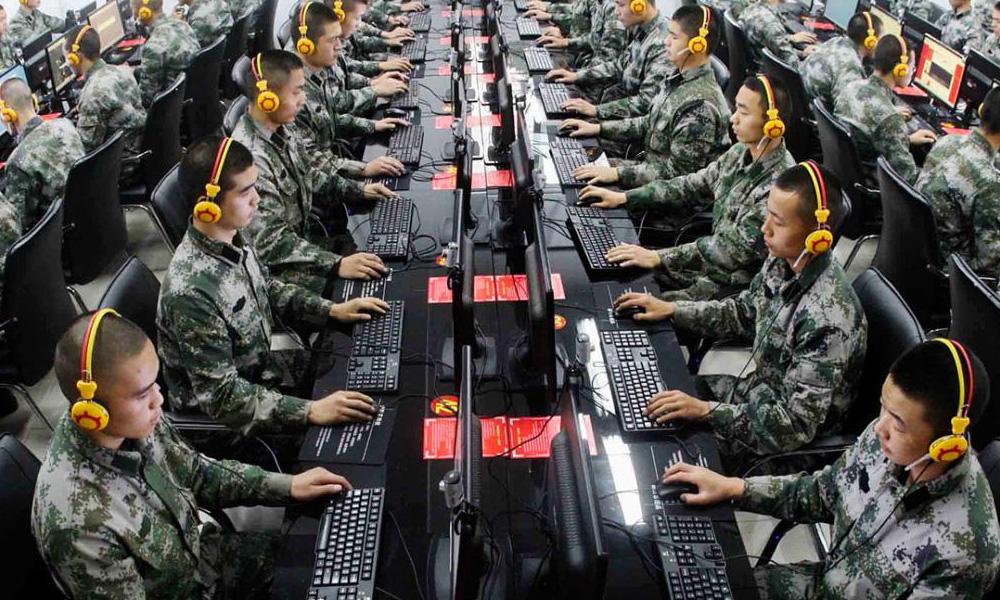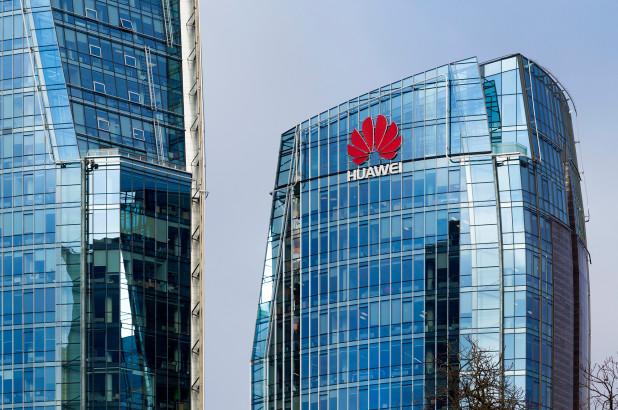Is This The Huawei & Chinese Intelligence Smoking Gun?


Some reports are already calling it the 'smoking gun' in the ongoing conflict between Washington and Beijing centered on Chinese telecom giant Huawei, and accusations that it's tied closely to Chinese military and intelligence, as a way for Beijing to infiltrate and spy on western governments and US companies.
Now, a "massive trove" of newly leaked records of Huawei employees appear to show "far closer links" between the private company and military-backed cyber agencies than previously known, according to The Telegraph. This follows on the heels of the discovery of academic research documents also confirming close cooperation between Huawei employees and the People's Liberation Army (PLA) uncovered by Bloomberg last month, as we previously reported. The new trove of employee CVs contains some 25,000 records analyzed by Fulbright University's Christopher Balding and UK-based Henry Jackson Society researchers (which, it should be noted, is a hugely controversial neocon think tank).

Yet in spite of the growing mountain of documented evidence, the company line has remained, "Huawei does not have any R&D collaboration or partnerships with the PLA-affiliated institutions," as stated by Huawei spokesman Glenn Schloss less than two weeks ago. "Huawei only develops and produces communications products that conform to civil standards worldwide, and does not customize R&D products for the military," he added, as cited in Bloomberg.
Huawei's defense following that prior report was to say the joint research publications were "not authorized" — but the newest revelation places cooperation with the PLA even closer, per a new bombshell report:
According to the study, the employment files suggest that some Huawei staff have also worked as agents within China’s Ministry of State Security; worked on joint projects with the Chinese People’s Liberation Army (PLA); were educated at China’s leading military academy; and had been employed with a military unit linked to a cyber attack on US corporations."
Analysts are calling it confirmation of a "systemized, structural relationship" between the PLA, Chinese intelligence, and Huawei.
The company has responded by pointing out it's common to have an employee revolving door of sorts between the private and public sectors (as does Washington), and that personnel CVs will reflect this reality.

One example given is for a current employee whose previous posting was with the National Information Security Engineering Centre, which Reuters has linked to the PLA's Unit 61398—"the unit has been accused of being at the heart of China’s alleged cyber-war against Western commercial targets."Some employees have links to the Chinese Ministry of State Security (MSS), which the report points out "is the primary entity responsible for espionage and counter-intelligence. It should raise immediate concern that MSS assets are working on networking equipment as representative agents for Huawei."
And further examples from the trove of documents are as follows:
Analysis of the CVs found 11 Huawei staff graduated from the PLA’s Information Engineering University, a military academy reputed to be China’s centre for “information warfare research”.
CVs are full of references to military backgrounds among Huawei employees:
Prof. Balding, in conjunction with the Henry Jackson Society, a London-based think-tank, concluded that about 100 Huawei staff had connections with the Chinese military or intelligence agencies and their “backgrounds indicated experience in matters of national security”.
In a number of instances employees at the managerial level maintain simultaneous roles in PLA operations and the private telecom giant:
The study claims that one Huawei project team leader refers on his CV to work on joint projects between the telecoms company and the Chinese Army’s National University of Defence Technology, one of China’s leading military academies and was put on a U.S. list, banning American firms from selling it technology in 2015, under Barack Obama’s presidency.Another Huawei employee’s CV says she works both at the telecoms giant as a software engineer and also at the Radar Academy of the Chinese Army. The academy, says Prof. Balding, “matches closely her work for Huawei”....The study links another Huawei engineer, who has worked in Europe, to being a “representative” of the Ministry of State Security, China’s intelligence agency.
And crucially, at least one telecoms engineer involved in Huawei's controversial next generation 5G broadband roll out has a CV which heavily restricts information "due to the involvement of military secrets":
A further CV reveals a senior Huawei engineer worked on “a database-driven surveillance system capable of accessing every citizen’s record and connecting China’s security organizations” — otherwise known as the “Great Firewall of China”.One more CV shows a Huawei telecoms engineer involved in development of 5G “base stations” who says on his CV that he cannot comment on his previous employment “due to the involvement of military secrets”.
One of the chief researchers involved in analyzing the employment records said, “These CVs are a treasure trove”; however, in light of the report's release Huawei maintains a nothing to see here stance, likening the findings to the parallel situation of former NSA contractors rotating between the public and private sectors in the US.
A Huawei spokesperson quoted in Forbes said "this information is not new and is not secret, being freely available on LinkedIn and other career web sites. It is also not unusual that Huawei, in common with other tech companies around the world, employs people who have come from public service and worked in government. We are far more competitive thanks to our colleagues' previous experiences. We are proud of their backgrounds and we are open about them."
Is this indeed the Huawei-PLA intelligence smoking gun, or just business as usual for a major tech giant in an industrialized, militarily powerful nation?
..........................................................................................................
Huawei founder, and father of Meng Wanzhou, rejects accusations of spying
Huawei’s founder Ren Zhengfei on Tuesday rejected claims his company is used by the Chinese government to spy and said he missed his daughter, who is being held by Canadian authorities, the Financial Times newspaper reported.
Meng Wanzhou, Huawei’s chief financial officer, was detained in Canada last month at the request of U.S. authorities who allege she misled banks about the company’s control of a firm operating in Iran.
READ MORE: China criticizes Trudeau’s remarks on death sentence decision, says he should ‘respect rule of law’
Huawei had “never received any request from any government to provide improper information”, the newspaper reported Ren as saying in an interview with reporters in the southern city of Shenzhen.
“I still love my country, I support the Communist party, but I will never do anything to harm any country in the world,” he said, adding he missed his daughter “very much”.
Huawei confirmed the accuracy of Ren’s comments to Reuters. Ren, a former military officer who founded Huawei in 1987 and largely keeps a low profile, said he owned 1.14 percent of the company’s shares.
WATCH: Canada-China relations take another hit as
Beijing and Ottawa have been at odds since Meng’s arrest, which China’s foreign ministry on Tuesday called an abuse of legal procedures. On Monday, China sentenced a Canadian to death for drug smuggling, further damaging relations.
Huawei, the world’s biggest producer of telecommunications equipment, has been facing intense scrutiny in the West over its relationship with China’s government and U.S.-led allegations that its devices could be used by Beijing for spying.
No evidence has been produced publicly and the firm has repeatedly denied the accusations, but some Western countries have restricted Huawei’s access to their markets. Poland said this week it could consider banning the use of Huawei products by public bodies, after it arrested a Chinese Huawei official.
Ren dismissed fears over the security of Huawei’s equipment, saying “no law in China requires any company to install mandatory backdoors (that could be used for spying)” and added the company had had “no serious security incidents”.
He also played down the risk Huawei faced from being blocked from the rollout of 5G telecoms networks by some countries.
“It’s always been the case, you can’t work with everyone … we’ll shift our focus to better serve countries that welcome Huawei’” he said, adding the company had 30 contracts globally to build 5G networks.
U.S. President Donald Trump in August signed a bill that barred the U.S. government from using Huawei equipment and is considering an executive order that would also ban U.S. companies from doing so.
WATCH: ‘I think we’re going to be able to do a deal with China’: Trump
However, Trump told Reuters last month he would intervene with the Justice Department in the case against Meng if it would help secure a trade deal with Beijing.
Ren described Trump as “great” and praised his tax cuts as good for American industry.
“The message to the U.S. I want to communicate is: collaboration and shared success. In our world of high tech, it’s increasingly impossible for any single company or country to sustain or to support the world’s needs,”





No comments:
Post a Comment
Comments always welcome!